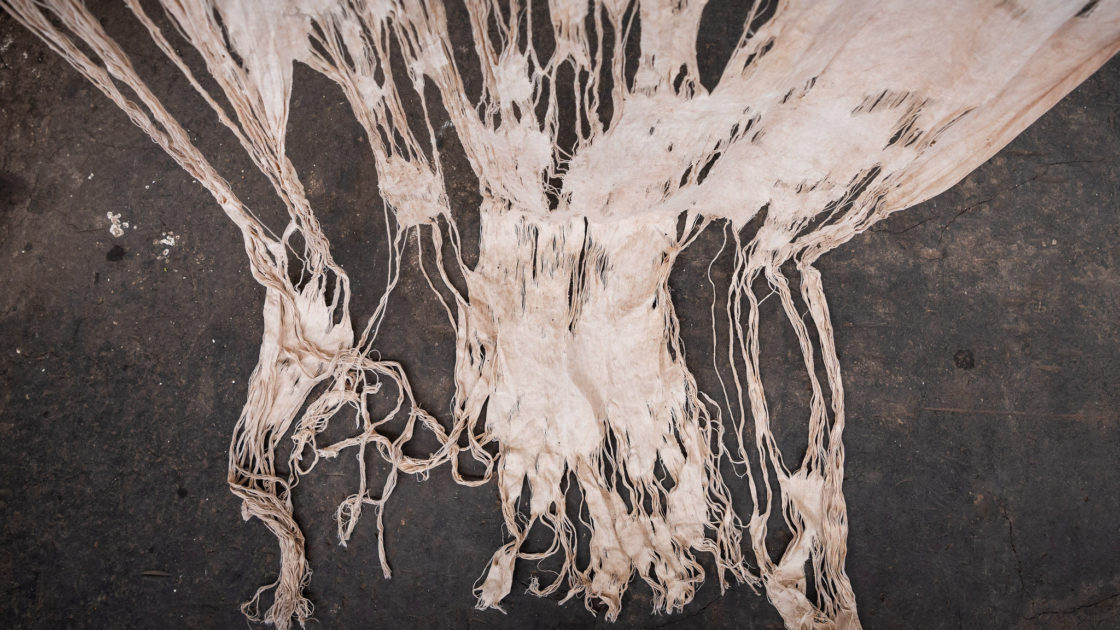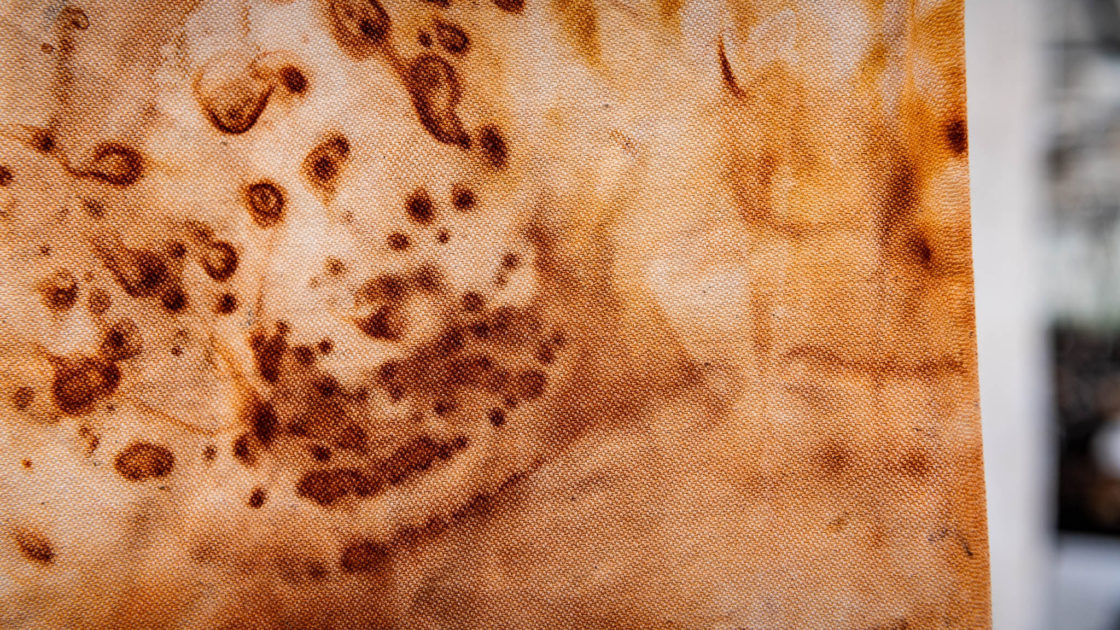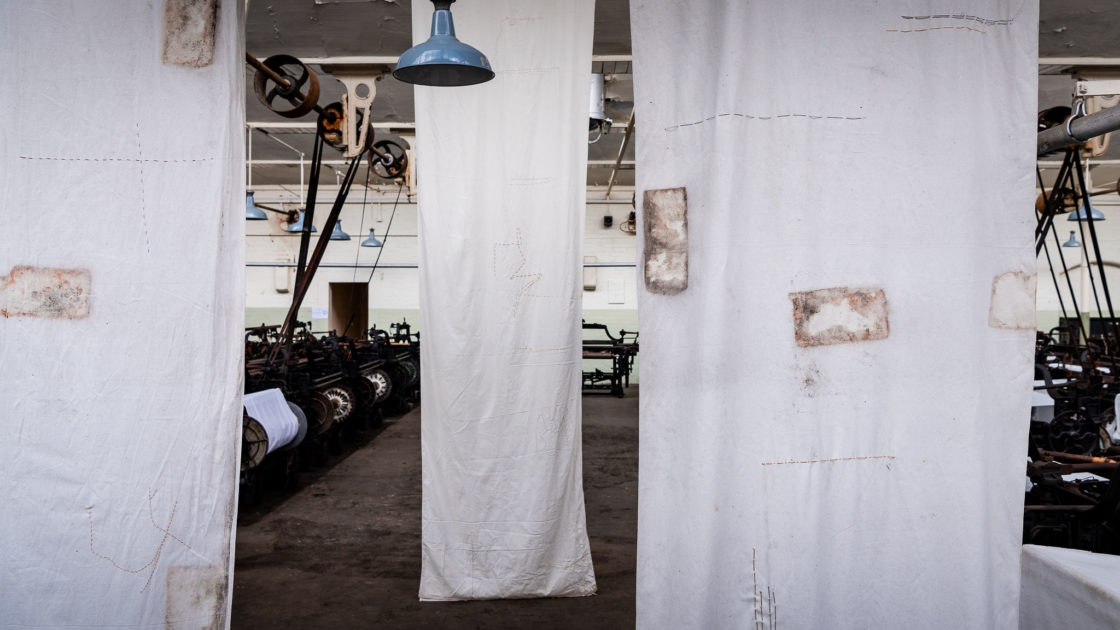Litmus
Environmental Legacies of Cotton
LITMUS: Environmental Legacies of Cotton brought together a series of large-scale textile pieces by artist Natalie Linney with interdisciplinary research from the University of Manchester.
Led by Dr Laura Pottinger, Prof. Alison Browne and Natalie Linney in collaboration with the Cottonopolis Collective, the work drew on multiple meanings of a ‘litmus test’ – a universal, dye-based indicator of pH levels derived from lichen, and a social indicator proving success, impact or values. It explored how working collaboratively with cloth, colour and environmental materials might begin to unearth and unpick the local and global environmental consequences of the North West’s cotton industry.
The Cottonopolis Collective
As the global epicentre of cotton production in the nineteenth century, Manchester became known as ‘Cottonopolis’. Though often celebrated as a city of innovation, Manchester’s cotton industry had far-reaching and problematic impacts. Manchester and towns across Lancashire were key hubs in the expansion of the United Kingdom’s colonial aspirations.
The Cottonopolis Collective is led by Dr Aditya Ramesh and Prof. Alison Browne at The University of Manchester. It brings together historians, human and physical geographers, social and environmental scientists, cultural organisations and artists to interrogate Manchester’s legacies as the first industrialising city. This research questions the expansion of global cotton markets through environmental science, which ultimately provided the cultural and scientific authority that underpinned colonial expansion, frontier agriculture, and colonial urbanisation across the globe.
Delving into the social and environmental histories of cotton unsettles the celebration of Manchester as a city of science and innovation. It begins to untangle the many ways that industrial Manchester impacted people and environments both near and far, as well as questioning the environmental knowledges it created.
Acknowledgements: The Cottonopolis project was funded by Arts and Humanities Research Council (AHRC) and the Natural Environment Research Council (NERC); the Making, Dyeing, Materialising project by The University of Manchester Research Collaboration Fund; the Research Fellowship Making Slow Colour and Artist Residency in Geography by the Simon Endowment Fund. The project has also been generously supported by Manchester Museum, Quarry Bank Mill National Trust, the University of Manchester Geography Laboratories Teams, the University of Manchester Makerspace, the wider Cottonpolis Collective and other colleagues at the University of Manchester.
With thanks to: Abi Stone, Aditya Ramesh, Alastair Lomas, Alisha Quinn, Alison Browne, Andy Speak, Anke Bernau, Arianna Tozzi, Aurora Fredriksen, Benedict Gretton, Chris Jackson, David Browne, David Polya, Dongyang Mi, Erin Beeston, Franciska de Vries, Gareth Clay, Hayley Caine, Jane Wood, Jenna Ashton, Joe Smith, John Moore, Johnny Huck, Jonathan Yarwood, Kerry Pimblott, Laura Pottinger, Laura Richards, Lindsey Loughtman, Mark Usher, Martin Dodge, Natalie Linney, Natalie Zacek, Nathaniel Millington, Polyanna da Conceição Bispo, Rachel Kenyon, Rachel Webster, Rebecca Self, Richard Bardgett, Sami Pinarbasi, Suzanne Kellett, Tom Bishop, Xuehan Zhou, and staff from the British Textile Biennial and Queen Street Mill.
More information at: https://www.sci.manchester.ac.uk/research/projects/cottonopolis/
Dates
29/09/2023 – 29/10/2023


